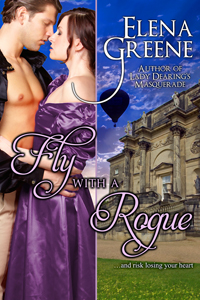Going Back in Time - with A Pen

Writing a historical novel is like time travel. The lucky reader gets to vicariously live in another era, through the story told in the book’s pages.
But after the author has done all the research, how can he make the reader believe the story actually lives in that period? All of the words on the page must somehow sound right, whether they’re dialogue, exposition, or quotations. The reader must believe she’s living the characters’ story with them – even though it takes place worlds away from her.
But how on earth can an author pull it off? The vocabulary from that era may be so different that it’s hard to express what happened. Blackmail and homosexuality, for example, are fairly recent terms. To make life even more fun, sentences may no longer be put together quite the same way. Modern grammar discourages adverbs and encourages informality, habits that could mark social status centuries ago.
Even harder is making the reader believe he’s listening to dialogue spoken centuries ago. Even if the author can pull off the words and rhythm, she still has to inform it with the thought process of times gone by.
Here’s Robert Louis Stevenson providing some backstory in Treasure Island:
But he broke in cursing the doctor, in a feeble voice but heartily. “Doctors is all swabs,” he said; “and that doctor there, why, what do he know about seafaring men? I been in places hot as pitch, and mates dropping round with Yellow Jack, and the blessed land a-heaving like the sea with earthquakes – what do the doctor know of lands like that? – and I lived on rum, I tell you. It’s been meat and drink, and man and wife, to me; and if I’m not to have my rum now I’m a poor old hulk on a lee shore, my blood’ll be on you, Jim, and that doctor swab.”
I particularly admire Georgette Heyer’s ability to suck me into any time period, strictly through dialogue. Here’s her description of the heroine’s family home, from The Grand Sophy.
‘Everything seems to be in shocking disorder!’ she observed. ‘I must tell Sir Horace that it will not do! He should not neglect the house in this way. There is work here for an army of gardeners! He never liked the place, you know. I have sometimes wondered if it was because my mother died here.’ Lord Charlbury made a sympathetic sound in his throat, but Sophy continued cheerfully: ‘But I daresay it is only because he is shockingly indolent! Ring the bell again, Charlbury!’
After a prolonged interval, they heard the sound of footsteps within the house, to be followed immediately by the scrape of bolts being drawn back, and the clank of a chain removed from the door.
‘I am reconciled, Sophy!’ announced Charlbury. ‘Never did I hope to find myself existing within the covers of a library novel! Will there be cobweb, and a skeleton under the stairs?’
‘I fear not, but only think how delightful if there should be!’ she retorted.
Or this bit of fighting from Beauvallet, set more than a century earlier:
The footsteps came nearer; the door was opened a few inches, and Luis, the valet, looked out. ‘Who knocks? What do you want?’
Joshua’s arm slid lovingly around his neck; the point of his dagger pricked the man’s throat. ‘Nay then, my cosset, no sound out of you, or you are sped,’ he said softly.
The man’s eyes stared at him, his lips moved soundlessly.
‘Truss him up,’ said Sir Nicholas, and passed into the lodge.
How does an author research the words to use? I’m personally very fond of letters and business reports, whenever I can find them. I love reading military action reports, since those aren’t written for literary effect yet they can still convey powerful emotion. (Ever read an account of a great victory? Or a defeat told by one of the few survivors? Wow, just wow. There’s an alpha male who’s hurting.)
Okay, and I also read poetry from the era, because it tells me what rhythm that era’s people found pleasurable.
Of course, then I personally start worrying whether today’s readers will understand – or enjoy – an accurate rendition of words from another age. Should I want my story to sound just like a sister of Jane Austen or Lord Byron told it? Or should it be a first cousin to Stephen King and Nora Roberts? (There are some weird hybrids floating around there…)
At the end of the day, the words are the path through time when a reader dives into a historical novel. But they also keep both the characters – and the reader – alive and well.
Readers, what authors do you think use words uncommonly well to pull you into past worlds? Authors, what do you research to help find the right language for a historical novel?



Comments
Post a Comment